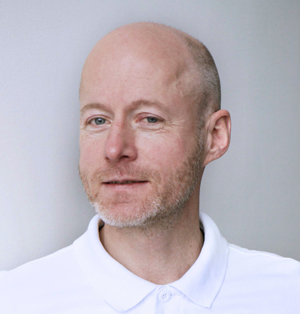Hunt for biomarkers leads to more personal health care
Life science
A one-size-fits-all approach to medicine is costly for the public health system and dangerous for patients. Research at KTH is looking for a way to individualise medication for better, healthier results.

About 90 percent of the drugs on the market work as intended for only about 40 percent of patients. Jacob Odeberg, Professor of Proteomics with KTH Royal Institute of Technology’s Science for Life Laboratory, sees a better way to treat illness – with the help of biomarkers.
The way illness is treated does not change much from patient to patient. You get the same disease as your neighbour, co-worker or cousin, and you receive a prescription for the same drug they got – often the same dosage.
A one-size-fits-all approach is desirable for many consumer goods; but in the realm of medicine it can be ineffective or even dangerous.
Some patients obtain little or no benefit from the prescribed dose. Still, others experience serious side effects. These are the kinds of complications a doctor cannot foresee.
But Odeberg is involved in research to find new biomarkers that make it possible to individualise the use of medications for various diseases.
The aim, is “the right treatment to the right patient, at the right time, at the right price,” says the professor, who also is also a specialist doctor at the Karolinska University Hospital Hematology Center in Stockholm.
“That is, to identify which patients will respond or not respond to a particular treatment,” Odeberg says. “To provide individual patient treatment options and personalised dosages, and to identify those patients at risk of serious side effects,” he says.
A biomarker is a biological variable that reflects a physiological change in the body following an illness. Typical biomarkers used today include cholesterol, the prostate-specific antigen, PSA, or troponin. The latter, for example, is secreted when the heart muscle is damaged, which helps cardiologists diagnose heart disorders.
The research underway at KTH is looking for new biomarkers in the form of proteins that can be analysed in a simple blood sample,
thereby providing information that determines the processing of the individual patient.
“Biomarkers improve patient safety,” Odeberg says. They offer the doctor an accurate alternative to radiography and invasive tissue samples, enabling early diagnosis and proper treatment with a lower risk of adverse side effects.
Biomarkers don’t just offer a way to improve treatment with existing drugs. They make it possible to develop new customized medications for specific disease groups. Odeberg’s research also includes enabling doctors to predict the risk that a person will suffer from one or several diseases. This would offer a more effective form of screening for many diseases then the methods currently available.
Odeberg says the research could lead to screenings for cardiovascular diseases and cancer.
“Take, for example pancreatic cancer,” he says. “There is an average survival of six months after diagnosis. It can develop in secret for 10 years, completely undetected. It is only in the late stage, when in most cases the cancer can no longer be cured, that the symptoms begin to appear and the diagnosis is made.”
KTH and the Science for Life Laboratory are particularly suited to the task of finding these biomarkers because of the world class centre for clinical proteomics, Odeberg says. The centre has a multidisciplinary team with a background in technology, clinical and biomedical work.
Sweden also has, compared to many other countries, unique health care databases and biobanks available for research.
Odeberg says the prognosis for individualised medication is bright.
“I believe that new biomarkers may reach clinical activity within three to five years after initial discovery,” he says.
For more information, contact Jacob Odeberg at 08 - 52 48 15 74, 070-208 75 71 or Jacob @ biotech.kth.se.
Peter Larsson

